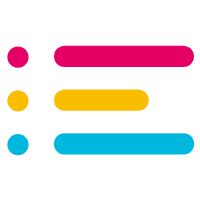





Welcome to PlatON Tips-Episode 18
We are going to talk about the Governance mechanism
Governance Overview
Blockchain governance mechanism refers to a set of decision rules and action standards for stakeholders in the blockchain ecosystem to agree on decisions. The goal is to allow the decentralized network to iteratively develop over time. In the blockchain, some important technologies, such as consensus mechanism, scalability, security, etc., can be better solved by providing reasonable incentives through the governance mechanism. A complete blockchain governance mechanism should be the combined product of blockchain technology, economics, and politics, including rights distribution, economic incentives, and technological realization. The blockchain’s ecological structure consists of developers, miners, and users. Each role in governance needs to play its own value, assume corresponding responsibilities, and obtain corresponding benefits. The significance of governance is to reduce the occurrence of community fragmentation and chaos, help the community to improve the efficiency of project update and iteration, and increase the participation of community members.
Analysis of governance status
At present, governance is divided into off-chain governance and on-chain governance from the big model. Off-chain governance is controlled by core developers. Nodes send their decision signals by installing their preferred software and give full responsibility to those who run complete nodes. It has higher flexibility, but requires higher social coordination costs and lacks reasonable Incentive mechanism Lockup the entry of new developers. On-chain management has a clear set of governance processes, which are forcibly upgraded through the on-chain proposal voting mechanism and hand over decision-making power to stakeholders.
The representative public chains of off-chain governance, such as Bitcoin and Ethereum, are mainly upgraded by the core developers, and ordinary miners and user groups lack the right to choose. Therefore, participation is low and the citizen base is weak. Recognizing the shortcomings of off-chain governance, some public chains have begun to launch their own on-chain governance mechanisms to digitize community decisions and greatly reduce the coordination costs of stakeholders. The common power distribution method of on-chain governance mechanisms is often the choice and balance of direct democracy and indirect democracy.
Direct democracy involves the holders of money directly participating in the formulation of rules, using one coin per vote, and a higher degree of decentralization, such as Decred and Tezos. In direct democracy, there are often problems such as turnout, professionalism, and token concentration. Indirect democracy is the representative system. Representatives are elected through different methods and rely on the representatives to exercise their rights, such as the EOS super node, the board in Polkadot, and the “follow voting” mechanism in DFINITY. Indirect democracy needs to take into account the design of governance structures, the allocation of power, and incentives.
PlatON governance mechanism
In our opinion, decision-making power should belong to “stakeholders”, that is, the right belongs to the people. However, the referendum needs to take into account issues such as implementation costs, turnout rates, professionalism, and governance efficiency. Therefore, the referendum should not be the governance norm, but also the governance method in the case of major differences. In our PPoS design, the generation of validators is an election in itself, and the interests of validators are closely related to the rise and fall of the public chain ecology. It should assume more governance responsibilities and have more governance rights. Therefore, in PlatON governance, we have adopted a combination of direct and indirect democracy. Its core principles are: in the normal state, voting by the validator, that is, indirect democracy; under major differences, voting by the community, which is direct democracy.
Thank you for watching this video, follow me and take you to learn more about PlatON’s tips! See you next one!
Publisher:,Please indicate the source for forwarding:https://platonworld.org/?p=6912




